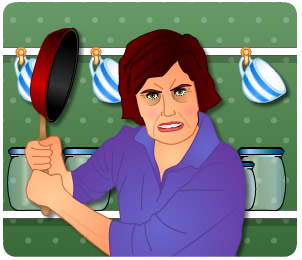
This problem can be particularly difficult for carer and friends to cope with. Sometimes there may be a low level of irritability or occasional flare ups in behaviour which can be difficult to handle. The person may be verbally aggressive or physically aggressive, sometimes a combination of both. You as the carer are just as important as the person you care for. They have had the stroke and may not have control over what they are doing but you also have been placed into this situation which you may not be able to control.
Tell them when they are calmer that their behaviour is inappropriate at times and give examples. They may not realise the impact their behaviour is having on you and those around them. Express your concerns for their safety and yours. Do not feel guilty about discussing your feelings with someone else. Friends often ask how the person is doing after the stroke but can back away if the news is not so good. This is the time when you need more support. Discuss with a health professional. Your GP, practice nurse, stroke nurse or carer centre.
If you feel you are in physical danger get help. Try to remove yourself from the situation even temporarily until the person has had time to calm down. Even going in to another room for a few moments can help. Look for any triggers (topics of conversation, noise levels, people who are there, certain events that are happening) which appear to set off the aggressive behaviour so you can try to avoid or distract the person before the behaviour escalates.
There may be medication, cognitive behavioural therapy, counselling or psychiatry services that could help the person with their anger management but you have to tell someone you need help.Talk to someone who could help you or the person who had the stroke. If you just want to talk to someone anonymously call the CHSS Advice Line in confidence. 0808 801 0899